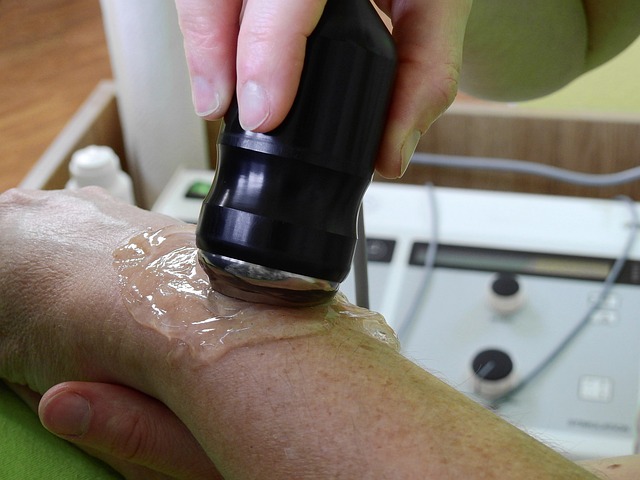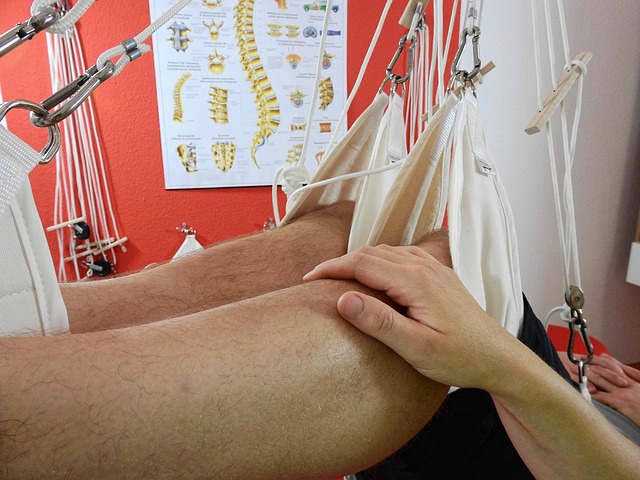In this post, we will talk about how to find a good physical therapist. Physical therapy plays a critical role in rehabilitating individuals dealing with injuries, surgeries, or chronic conditions.
Finding a good physical therapist is essential, whether you’re seeking relief from pain, recovering from surgery, or improving your overall mobility and functionality.
With numerous therapists available, it can be challenging to identify the right practitioner for your specific needs. This article will explore intelligent steps to help you find a skilled and compatible physical therapist.

Image Source: Pixaby
Find A Good Physical Therapist With These Smart Steps
Understand Your Needs
Before embarking on your hunt for a physical therapist, it’s essential to understand your needs and goals clearly. Assess your condition, identify specific areas of concern, and define your rehabilitation objectives.
Whether you’re recovering from a sports injury, surgery, or managing a chronic condition, knowing your requirements will help you in finding a practitioner with the appropriate expertise.
Rest assured that the best physical therapists can tailor their methods to meet your unique needs, but clearly understanding your situation will help you communicate effectively and collaborate with your therapist more efficiently.
Your proactive engagement in understanding and articulating your needs ultimately sets the stage for a more personalized and practical rehabilitation experience.
Consult with Your Primary Care Physician
Your primary care physician can be invaluable for finding a good physical therapist. Discuss your condition with your health practitioner and seek recommendations from reputable therapists.
Physicians often have a network of healthcare professionals and can provide insights into which physical therapists have a proven track record of success. Your primary care physician can offer valuable context regarding any underlying medical conditions or considerations that may influence your rehabilitation.
Collaborating with your doctor ensures a holistic approach to your healthcare, fostering seamless communication between your medical team and contributing to a more comprehensive and coordinated rehabilitation plan.
Research Credentials and Specializations
Once you have a list of potential physical therapists, it’s time to delve into their credentials and specializations. Opt for therapists who are licensed and accredited by relevant authorities.
Also, consider therapists with certifications in specialized areas that align with your needs, such as orthopedics, sports medicine, or neurology.
A therapist’s expertise in your specific condition can significantly impact the effectiveness of your rehabilitation. Researching credentials allows you to verify a therapist’s commitment to continuing education and staying current with the latest advancements in their field.
Paying attention to specialized certifications demonstrates a dedication to honing skills in particular areas, ensuring that your chosen therapist possesses the expertise necessary to address the intricacies of your condition with precision and effectiveness.
Check Reviews and Testimonials
Online reviews and testimonials from previous patients often offer valuable insights into a physical therapist’s reputation and the quality of their services.
Websites like Healthgrades, Yelp, and Google Reviews can be excellent platforms for gathering feedback from others who have undergone similar treatments. Consider positive and negative reviews, and look for patterns or consistent feedback that may influence your decision.
Consider contacting friends, family, or colleagues who have personal experiences with the physical therapist you are researching.
Their firsthand accounts can provide additional perspectives, complementing online reviews and offering a more comprehensive understanding of the therapist’s strengths and potential areas for improvement.
By combining online testimonials and personal recommendations, you can make a more informed decision about the therapist’s suitability for your needs.
Inquire About Experience
Experience is a crucial factor when choosing a physical therapist. Inquire about the therapist’s years of practice, particularly in treating conditions similar to yours.
An experienced therapist is likely to have encountered various cases, honing their skills and developing a nuanced understanding of different rehabilitation approaches.
While newer therapists may be skilled, a seasoned professional brings a wealth of practical knowledge. Inquire about the therapist’s success stories with patients with similar conditions or rehabilitation goals.
Understanding specific cases they have managed successfully can give you confidence in their ability to address your needs effectively.
A seasoned professional brings a wealth of practical knowledge and a track record of positive outcomes that can contribute significantly to your trust in their expertise.
Assess Communication Skills and Evaluate Facility and Equipment
Effective communication between you and your physical therapist is crucial for a successful rehabilitation journey. During your initial consultation, assess the therapist’s ability to explain treatment plans, answer your questions, and listen to your concerns.
An excellent physical therapist should be able to establish clear communication, ensuring you understand the goals of your treatment and feel comfortable expressing your needs.
The physical therapy facility and the equipment available play a significant role in the effectiveness of your rehabilitation. Visit the clinic or office where the therapist practices and assess the cleanliness, organization, and overall atmosphere.
Additionally, inquire about the equipment and technology used in the rehabilitation process. A well-equipped facility with modern tools can enhance the quality of your therapy sessions.
Verify Insurance Coverage, Location, and Accessibility
Before committing to a physical therapist, verify whether they accept your health insurance. Contact the therapist’s office and your insurance provider to ensure the services are covered.
Understanding the financial aspects of your rehabilitation in advance can prevent unexpected expenses and make the process more manageable.
The location of the clinic and its accessibility are practical considerations that can impact your commitment to the rehabilitation process.
Choose a therapist whose clinic is conveniently located, especially if you’ll be attending multiple sessions per week. Consider factors such as parking availability, public transportation options, and the overall ease of reaching the clinic.
Once you’ve narrowed your options, schedule consultations with the physical therapists on your shortlist. This face-to-face meeting lets you discuss your needs, ask questions, and assess the therapist’s interpersonal skills.
Pay attention to how comfortable you feel with the therapist and whether they take the time to address your concerns thoroughly.

Image Source: Pixaby
Finding an excellent physical therapist requires a thoughtful and systematic approach. By understanding your needs, consulting with your primary care physician, researching credentials, checking reviews, assessing experience, evaluating communication skills, examining the facility, verifying insurance coverage, considering location and accessibility, and scheduling a consultation, you can make informed decisions to ensure a successful rehabilitation journey.
Remember that the relationship between you and your physical therapist is a partnership; choosing the right professional can make a significant difference in your path to recovery. Do you need help to find a good physical therapist? If you do, I hope this post helped you!